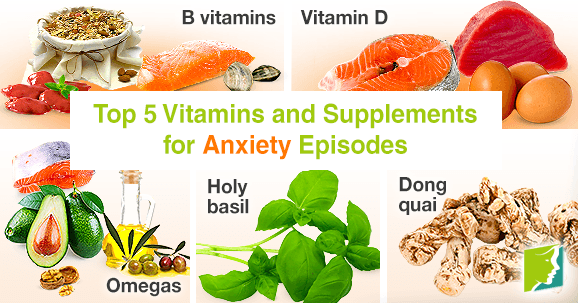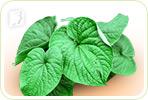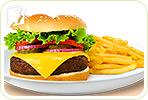Around 75% of Americans experience anxiety every day. The stress and worry can cause an uptight and unhappy life. During menopause, the increased stress can be closely linked to decreased estrogen levels in the body, which trigger stress response functions, worsening your feelings. In order to get a hold of your symptoms, it is important to ensure that you are getting enough key vitamins for mood. Learn which are most vital, as well as a couple of herbal remedies to reclaim your peace of mind.

B Vitamins
B12 is one of the most important vitamins for anxiety and depression, and a lack of it can impair cognitive function. Individuals with depression who have a B12 deficiency have been shown to benefit from supplementation. Further, vitamin B6 is extremely important for the production of “happy brain chemicals”, such as dopamine and serotonin. A B-complex multivitamin may help relieve symptoms of anxiety episodes.
Vitamin D
Research has found that many people are deficient in this essential vitamin, and the majority of those who get tested have low levels - sometimes dangerously so. In particular, studies have found that individuals with depression tend to have low levels of this fat soluble vitamin, found in eggs and fatty fish.
While your body can produce its own vitamin D with enough sun exposure, many doctors recommend that patients take a daily supplement until their levels are where they should be. Once optimal levels are achieved, individuals may notice a shift in their mood and coping abilities.
Omegas
Omega-3 and omega-6 fatty acids, which the body cannot manufacture, are essential for proper cognitive functioning. Those who experience depression often have a deficiency of omega-3. Studies have found that individuals notice markedly less anxiety and frustration within three weeks of taking omega supplements, typically at 1,500 mg daily. Ask your doctor if he or she can test you for omega-3 or 6 deficiency to find out which you may need to increase your intake of.
Holy Basil
This antioxidant-rich leaf, part of the mint family, has been used for millennia in India to restore peaceful functioning of the body, mind, and spirit. Studies have found that 1,200 mg daily can strongly calm your nerves without any reported side effects.
Dong Quai
You can also get to the root of menopausal hormonal instability by taking phytoestrogenic herbal supplements. Dong quai, also contains plant compounds that are received by estrogen receptors in the body and activate them when estrogen is not present. This can help regulate brain chemistry to minimize the amount of stress felt. Women all over the world are embracing the positive effects that dong quai has not only on their stress levels, but many other menopausal woes as well.
B vitamins, vitamin D, and omega fatty acids work harmoniously in the body to provide you with sustained feelings of relaxation and mental clarity. Whether through some dietary changes or a supplement, ensure that you are getting enough so as to improve your mentality. Your doctor can let you know if supplements like sedative holy basil or estrogen-boosting dong quai can also help.
Follow the link for further information on how to treat anxiety during menopause effectively.
Sources
- Hartvig, P. et al. (1995). Pyridoxine effect on synthesis rate of serotonin in the monkey brain measured with positron emission tomography. Journal of neural transmission, 102(2), 91-97. Retrieved from http://www.ncbi.nlm.nih.gov/pubmed/8748674
- Harvard School of Public Health. (n.d.). Three of the B Vitamins: Folate, Vitamins B6, and Vitamins B12. Retrieved May 29, 2014, from http://www.hsph.harvard.edu/nutritionsource/vitamin-b/
- Lehmann, M. et al. (2003). Vitamin B12-B6-folate treatment improves blood-brain barrier function in patients with hyperhomocysteinaemia and mild cognitive impairment. Dementia and geriatric cognitive disorders, 16(3),145-150. Retrieved from http://www.ncbi.nlm.nih.gov/pubmed/12826740
- Maddock, J. et al. (2013). Vitamin D and common mental disorders in mid-life: cross-sectional and prospective findings. Clinical nutrition, 32(5), 758-764. doi: 10.1016/j.clnu.2013.01.006
- National Institutes of Health. (2012). Dong Quai. Retrieved May 29, 2014, from http://www.nlm.nih.gov/medlineplus/druginfo/natural/936.html
- Oshen, Y. & Belmaker, R.H. (2009). Omega-3 fatty acids in depression: a review of three studies. CNS neuroscience & therapeutics, 15(2), 128-133. Retrieved from http://www.ncbi.nlm.nih.gov/pubmed/19499625
- Sánchez-Villegas, A. et al. (2009). Association between folate, vitamin B(6) and vitamin B(12) intake and depression in the SUN cohort study. Journal of human nutrition and dietetics, 22(2), 122-133. doi: 10.1111/j.1365-277X.2008.00931.x
- Saxena, R.C. et al. (2012). Efficacy of an Extract of Ocimum tenuiflorum (OciBest) in the Management of General Stress: A Double-Blind, Placebo-Controlled Study. Evidence-based Complementary and AlternativeMedicine,894509. doi: 10.1155/2012/894509
- University of Maryland Medical Center. (2013). Omega-3 Fatty Acids. Retrieved May 29, 2014, from http://umm.edu/health/medical/altmed/supplement/omega3-fatty-acids



